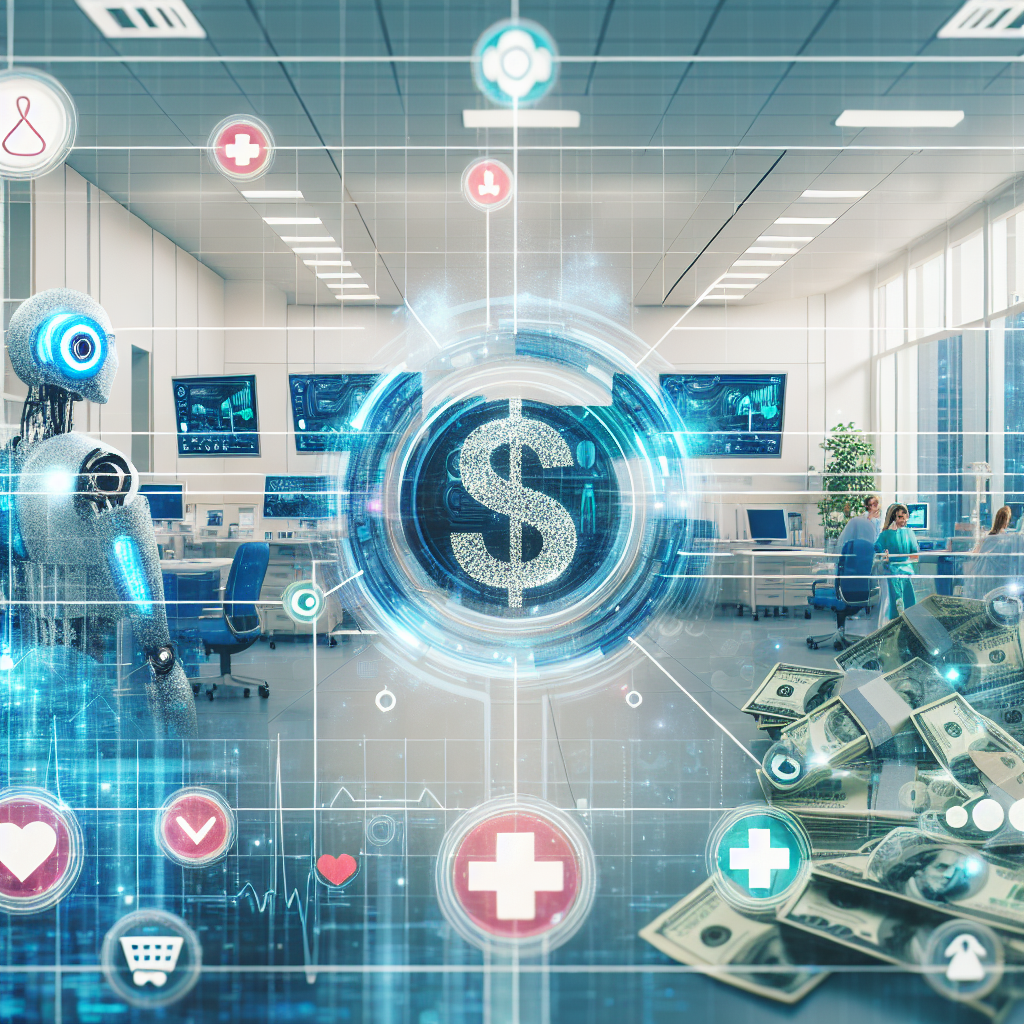AI in Healthcare Revenue Recovery
Introduction
In recent years, artificial intelligence (AI) has made significant advancements in the healthcare industry, revolutionizing the way medical professionals diagnose and treat patients. One area where AI has shown tremendous potential is in healthcare revenue recovery. With the increasing complexity of billing and coding procedures, healthcare providers are constantly looking for ways to streamline their revenue cycle management processes and maximize their revenue. AI technology offers a solution to this problem by automating repetitive tasks, reducing errors, and identifying revenue leakage opportunities. In this article, we will explore the role of AI in healthcare revenue recovery and its potential benefits for healthcare providers.
Benefits of AI in Healthcare Revenue Recovery
1. Automated Coding and Billing
One of the key benefits of AI in healthcare revenue recovery is its ability to automate coding and billing processes. AI algorithms can analyze medical records, identify relevant diagnosis codes, and generate accurate billing codes in a fraction of the time it would take a human coder. This not only speeds up the billing process but also reduces the risk of errors that can lead to claim denials and revenue loss.
2. Denial Management
AI technology can also be used to analyze claim denials and identify patterns that can help healthcare providers reduce denials in the future. By analyzing denial data, AI algorithms can identify common reasons for claim denials, such as missing information or coding errors, and suggest solutions to prevent them from happening again. This proactive approach to denial management can help healthcare providers improve their revenue cycle performance and reduce revenue leakage.
3. Revenue Leakage Detection
AI technology can also help healthcare providers identify revenue leakage opportunities that might otherwise go unnoticed. By analyzing billing data and comparing it to industry benchmarks, AI algorithms can pinpoint areas where revenue is being lost, such as undercoding, missed charges, or incorrect reimbursement rates. This insight allows healthcare providers to take corrective action and recover lost revenue, ultimately improving their bottom line.
4. Predictive Analytics
Another benefit of AI in healthcare revenue recovery is its ability to predict future revenue trends and identify opportunities for revenue growth. By analyzing historical billing data and external factors such as payer policies and regulatory changes, AI algorithms can forecast revenue projections and recommend strategies to maximize revenue potential. This predictive analytics capability can help healthcare providers make informed decisions about resource allocation, reimbursement strategies, and revenue cycle optimization.
5. Enhanced Patient Experience
AI technology can also improve the patient experience by streamlining billing and payment processes. By automating tasks such as insurance verification, eligibility checks, and payment processing, AI algorithms can reduce administrative burdens on both patients and healthcare providers. This not only improves patient satisfaction but also increases the likelihood of timely payments, leading to improved revenue recovery for healthcare providers.
FAQs
1. How does AI technology improve coding accuracy in healthcare revenue recovery?
AI algorithms use natural language processing and machine learning techniques to analyze medical records and identify relevant diagnosis codes. By automating this process, AI technology can generate accurate billing codes and reduce the risk of coding errors that can lead to claim denials and revenue loss.
2. How can healthcare providers use AI technology to reduce claim denials?
Healthcare providers can use AI technology to analyze claim denials and identify patterns that can help them reduce denials in the future. By analyzing denial data, AI algorithms can pinpoint common reasons for claim denials and suggest solutions to prevent them from happening again, ultimately improving revenue cycle performance.
3. How does AI technology detect revenue leakage in healthcare revenue recovery?
AI algorithms analyze billing data and compare it to industry benchmarks to identify areas where revenue is being lost, such as undercoding, missed charges, or incorrect reimbursement rates. By pinpointing revenue leakage opportunities, healthcare providers can take corrective action and recover lost revenue, ultimately improving their bottom line.
4. What are the benefits of using predictive analytics in healthcare revenue recovery?
Predictive analytics can help healthcare providers forecast revenue trends and identify opportunities for revenue growth by analyzing historical billing data and external factors such as payer policies and regulatory changes. This capability allows healthcare providers to make informed decisions about resource allocation, reimbursement strategies, and revenue cycle optimization.
5. How does AI technology improve the patient experience in healthcare revenue recovery?
AI technology can streamline billing and payment processes by automating tasks such as insurance verification, eligibility checks, and payment processing. By reducing administrative burdens on both patients and healthcare providers, AI technology improves the patient experience and increases the likelihood of timely payments, leading to improved revenue recovery for healthcare providers.
Conclusion
AI technology has the potential to revolutionize healthcare revenue recovery by automating coding and billing processes, reducing claim denials, detecting revenue leakage, and providing predictive analytics capabilities. By leveraging AI technology, healthcare providers can streamline their revenue cycle management processes, improve revenue recovery, and enhance the patient experience. As AI continues to evolve and become more sophisticated, its role in healthcare revenue recovery is expected to grow, offering new opportunities for healthcare providers to optimize their revenue cycle performance and maximize their revenue potential.

